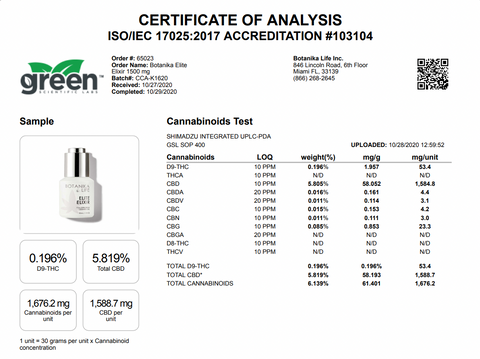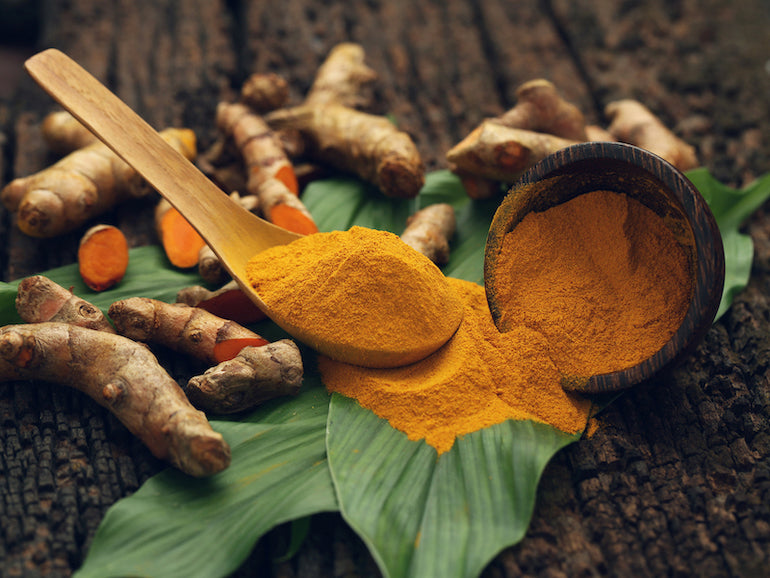
Vegan Skincare - What it Means & Its Benefits
Wondering what the hype is surrounding vegan skincare products? The truth of the matter is that vegan skincare is not only beneficial for animals and the environment but is also better for your overall health. Skin is your largest organ, and studies have shown that the average person puts hundreds (if not thousands) of chemicals on their skin every day without even realizing it.
A large population of consumers chose vegan and cruelty-free skincare products to safeguard the animal population, while others do so to protect the environment. But now it is becoming more popular for people to choose these products because they realize their skin will benefit from cleaner, more natural ingredients that are both safe and effective.
In this article, we’ll dive deeper into what it truly means for beauty products to be “vegan” and some of the benefits they can provide to sensitive skin (and may be overall better for your general wellness).
What it truly means for skincare to be vegan
Vegan skincare products are formulated without using any animal-derived ingredients or by-products. This means that many ingredients used in mainstream beauty products like honey, beeswax, lanolin, and collagen are ingredients that won’t be found in vegan skincare. What’s more, vegan skincare products are more likely to incorporate plant extracts.
What it truly means for skincare to be cruelty-free
Cruelty-free skincare products offer an ethical and humane approach to beauty. Products that are cruelty-free use ingredients and components that have never been tested on animals.
It is important to note that the terms vegan and cruelty-free do not always go hand in hand. Although rare, it is possible for vegan products to be tested on animals, causing them not to be cruelty-free. Vice versa, products that are not tested on animals are not necessarily vegan. Aka, make sure to read your skincare labels!
How Using Vegan Skincare Directly Benefits Your Complexion
There are additional benefits to using vegan, cruelty-free skincare products outside of the ethical, obvious ones.
The future of skincare lies in plant-based ingredients that are both vegan and cruelty-free. Not only are these options better for our environment but they are also a natural alternative to chemically based beauty products. Vegan skincare products are naturally rich in antioxidants and vitamins, and free of many chemicals that skincare products often contain.
Outside of the obvious benefits of vegan skincare, the simple ingredients are also at the top of the list. Toxic chemicals are used in many regular skincare products, but when you choose vegan and cruelty-free options, you have a much better chance of finding quality ingredients without the chemical sidekicks.
Overall higher-quality ingredients
Vegan products tend to be “better” than their non-vegan counterparts because they are made with naturally enhanced ingredients. Common vegan ingredients such as vitamins A, C, and E, along with beneficial omega fats, coconut, argan, and rosehip oils are just a few of the many vegan ingredient options that can offer soothing relief and replenishment for your skin.
For examples of specific vegan skincare ingredients worth your time, read Natural Ingredients for Glowing Skin.
Nutrient-rich
Vegan skincare products tend to be better for your skin because it is loaded with safe, nutrient-rich ingredients that contain a surplus of vitamins, minerals, natural oils, and antioxidants. These natural healers are safe for sensitive skin, primed with anti-aging properties, and help keep your skin moisturized.
Less likely to use harsh chemicals
Vegan skincare offers benefits that go beyond the ingredients it includes; equally crucial are the ingredients it excludes.
Just like there is a “dirty dozen” to avoid when buying fruits and vegetables, the same applies to the top 12 chemicals you want to stay away from in your beauty regimen. Vegan skincare is more likely to ditch these dirty dozen toxic chemicals that can cause redness, itching, and dryness, and use quality ingredients instead.
One example of a common non-vegan ingredient that can cause irritation in both sensitive and non-sensitive skin is lanolin, taken from sheep’s wool. Another known irritant? Stearic acid, derived from pigs’ stomachs and sometimes found in moisturizers and soaps.
Overall simpler formulas
Vegan products are generally made with natural and organic ingredients that tend to be gentler for sensitive skin. With fewer ingredients and more pure formulas, there is less likelihood of negative reactions or acne breakouts. Many of the most effective ingredients in vegan skincare are derived from plants, aka naturally and simply made. It comes down to simple formulas using simple ingredients.
Tends to be better for sensitive skin
If you struggle with dry or reactive skin, vegan skincare is the way to go for adding moisture and hydration. In addition to being gentler on your skin, vegan skincare rarely includes drying agents like sulfates. When your skin is easily irritated, it's best to use products with simple ingredients for less likelihood of aggravating sensitive skin.
What to Consider When Seeking Vegan Skincare Products
The caliber of the ingredients, both in potency and cultivation
Just because skincare products are considered “vegan” doesn’t mean that they’re automatically better than most others. The quality of ingredients used in your vegan skincare products, whether it's lavender oil or CBD, significantly influences their effectiveness in terms of cultivation and potency. Making sure that ingredients are organically grown will also ensure you are buying potent and safe skincare products.
Brand transparency – third-party testing of formulas
Third-party lab testing means that a laboratory, which is unrelated to the company producing and selling the products, evaluates the quality of the products it is testing. With no vested interest in the data being found, this ensures that the quality of ingredients matches the labels on your skincare products. What’s more, the company should be willing to lab share the results with the general public. For example, Botanika Life publishes reports on our site and also includes a QR code on our packaging that leads straight to the test resuls.

When it comes to vegan and cruelty-free skincare, you better believe that you want products made by a company that conducts third-party testing to have full brand transparency.
Avoid the presence of synthetic fragrances and chemicals
The term vegan isn’t always synonymous with safe and healthy; therefore, it is vital to read skincare labels and purchase products from reputable vegan companies. For example, it is still possible to find parabens, synthetic fragrances, and even formaldehyde in vegan products from low-quality companies.
Fragrances are added to almost all mainstream skincare products. The meaning of “fragrance” on a label can include a multitude of elements that may contain toxic chemicals, which can be irritating and dangerous for your skin. When it comes to vegan products, the only fragrance you should find is from natural sources, such as rosemary or lavender oil for example.
Shop for Vegan Skincare Solutions With Botanika Life
When looking for non-toxic skincare products, Botanika Life has the vegan, cruelty-free market mastered. With plant-based, organically grown ingredients, gone are the days of wondering what exactly is in your skincare products.

Botanika Life offers a wide range of vegan skincare products, from full-spectrum CBD serums that revitalize skin to the best vegan anti-aging skincare around. Check out the Illuminating Mini Skin Elixir Trio for a vegan, sustainable, and cruelty-free addition to your skincare routine. With natural ingredients like Marula Oil, Vitamin C, CBD, and Plant Stem Cells, you will never go back to mainstream skincare options.
Including the amazing benefits of vegan and cruelty-free ingredients, Botanika Life products make choosing skincare a walk in the park. In addition to natural plant-based ingredients, all Botanika Life products have a Certificate of Analysis displaying the results of the third-party lab tests which verify that you are getting the quality you pay for.

By Emily Wegener
With a unique background as an Integrative Nutrition Health Coach, Masters Degree in Teaching and experience in Psychology, Emily spends much of her time researching and trying out new holistic healing modalities.


